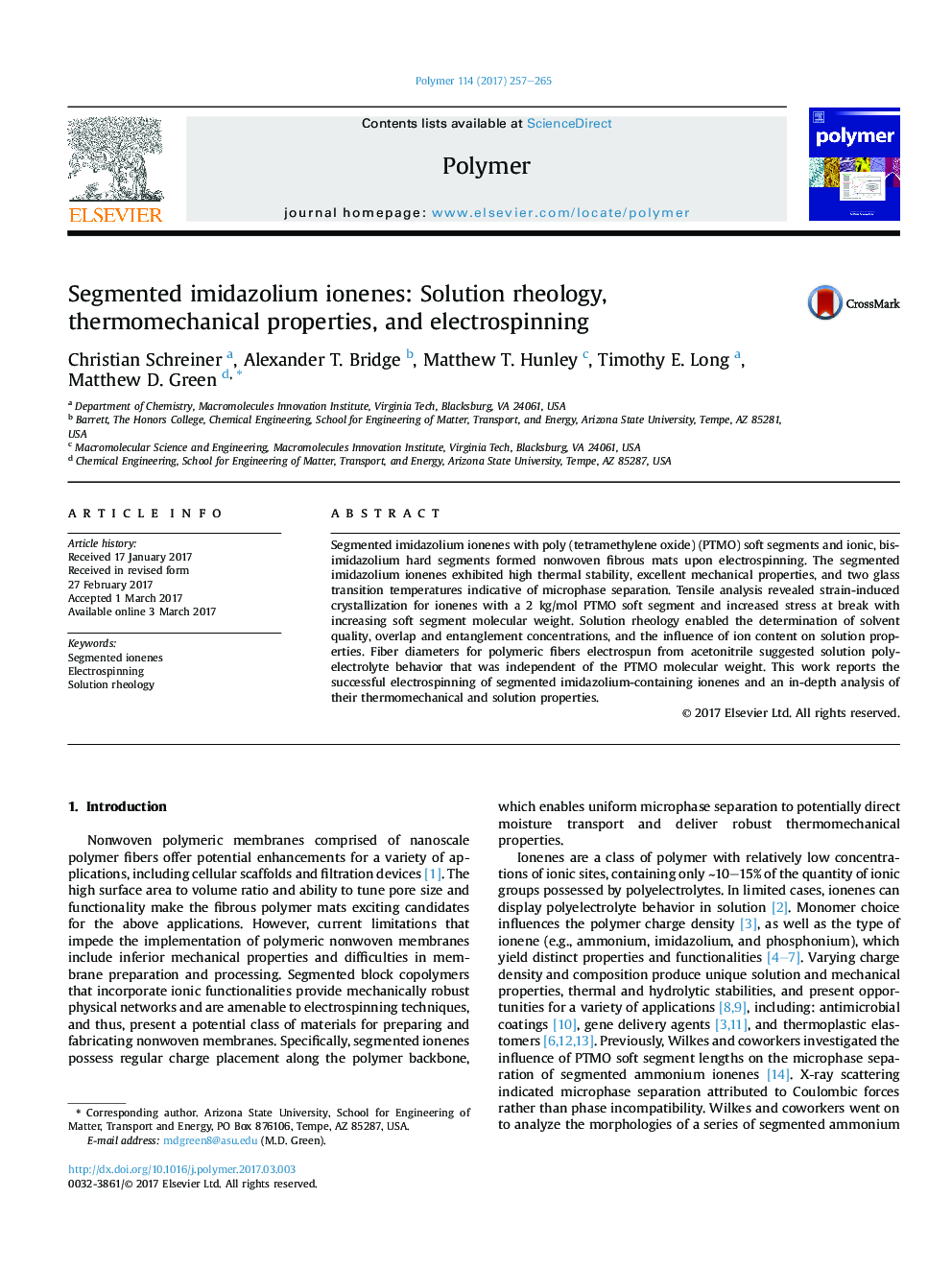| Article ID | Journal | Published Year | Pages | File Type |
|---|---|---|---|---|
| 5178282 | Polymer | 2017 | 9 Pages |
â¢Tensile testing indicated that strain-induced crystallization occurred when the PTMO molecular was above 1 kg/mol.â¢Variations in solvent polarity changed the solution conformation and degree of counterion condensation.â¢Changing charge density in a singular solvent revealed an upper limit for charge dissociation at approximately 20 wt%.â¢The imidazolium ionenes formed electrospun fibrous mats with characteristics similar to other polyelectrolytes.
Segmented imidazolium ionenes with poly (tetramethylene oxide) (PTMO) soft segments and ionic, bis-imidazolium hard segments formed nonwoven fibrous mats upon electrospinning. The segmented imidazolium ionenes exhibited high thermal stability, excellent mechanical properties, and two glass transition temperatures indicative of microphase separation. Tensile analysis revealed strain-induced crystallization for ionenes with a 2Â kg/mol PTMO soft segment and increased stress at break with increasing soft segment molecular weight. Solution rheology enabled the determination of solvent quality, overlap and entanglement concentrations, and the influence of ion content on solution properties. Fiber diameters for polymeric fibers electrospun from acetonitrile suggested solution polyelectrolyte behavior that was independent of the PTMO molecular weight. This work reports the successful electrospinning of segmented imidazolium-containing ionenes and an in-depth analysis of their thermomechanical and solution properties.
Graphical abstractDownload high-res image (128KB)Download full-size image
